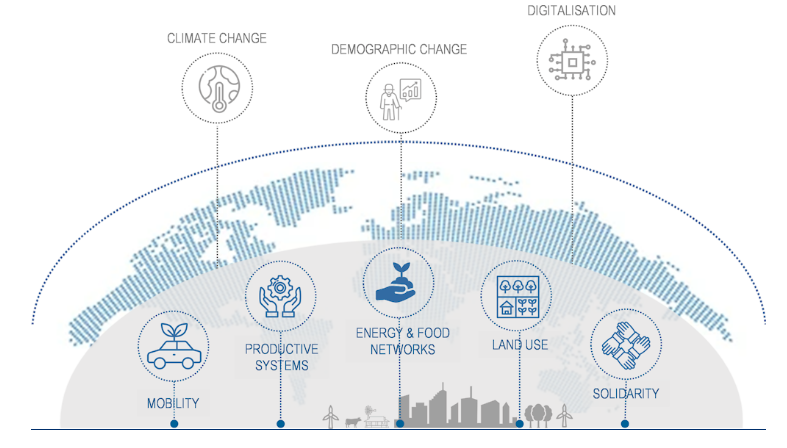
OECD Regional Outlook 2023. The Longstanding Geography of Inequalities
The Organization for Economic Cooperation and Development (OECD) presented a new report on regional development issues.
The authors analyzed the problem of growing regional inequality, its causes and consequences for the economic, social and political structure of society.
The OECD identifies four trajectories for the development of socio-economic inequality in the organization’s member countries:
- Growing regional inequality in high-income countries (Belgium, UK, Denmark, USA, France, Sweden).
- Income growth is accompanied by rising inequality (Eastern European countries).
- Reducing inequality while maintaining high income levels (Germany, the Netherlands, New Zealand, Norway, Finland).
- Reducing inequality in conditions of low economic performance (Southern European countries, including Greece, Spain and Portugal).
The authors note the key role of megacities and urban agglomerations in the development of regions. The quality of human capital, infrastructure and government services provide additional incentives for economic development. Thus, on average, in megacities of OECD countries, GDP per capita is 32% higher than in other regions. While successful cities continue to grow and attract skilled labor, other regions face an aging and declining population. In addition, the regions lag significantly behind in terms of infrastructure development. On average, a third of households in rural areas do not have access to high-speed broadband, and only 7 of 26 OECD countries provide access to a high-speed connection to at least 80% of rural households.
The presence of regional inequality is inevitable due to a number of factors. However, ignoring this problem entails significant risks: a reduction in national growth, an increase in government spending, an increase in the cost of living in large cities, and a decrease in political ratings.
To improve the effectiveness of regional policies, the OECD recommends:
- Developing digital infrastructure.
- Attracting best talents to the regions.
- Promoting the integration of regions into global value chains, attracting investments in transport and digital infrastructure.
- Improving the quality of regional government.



